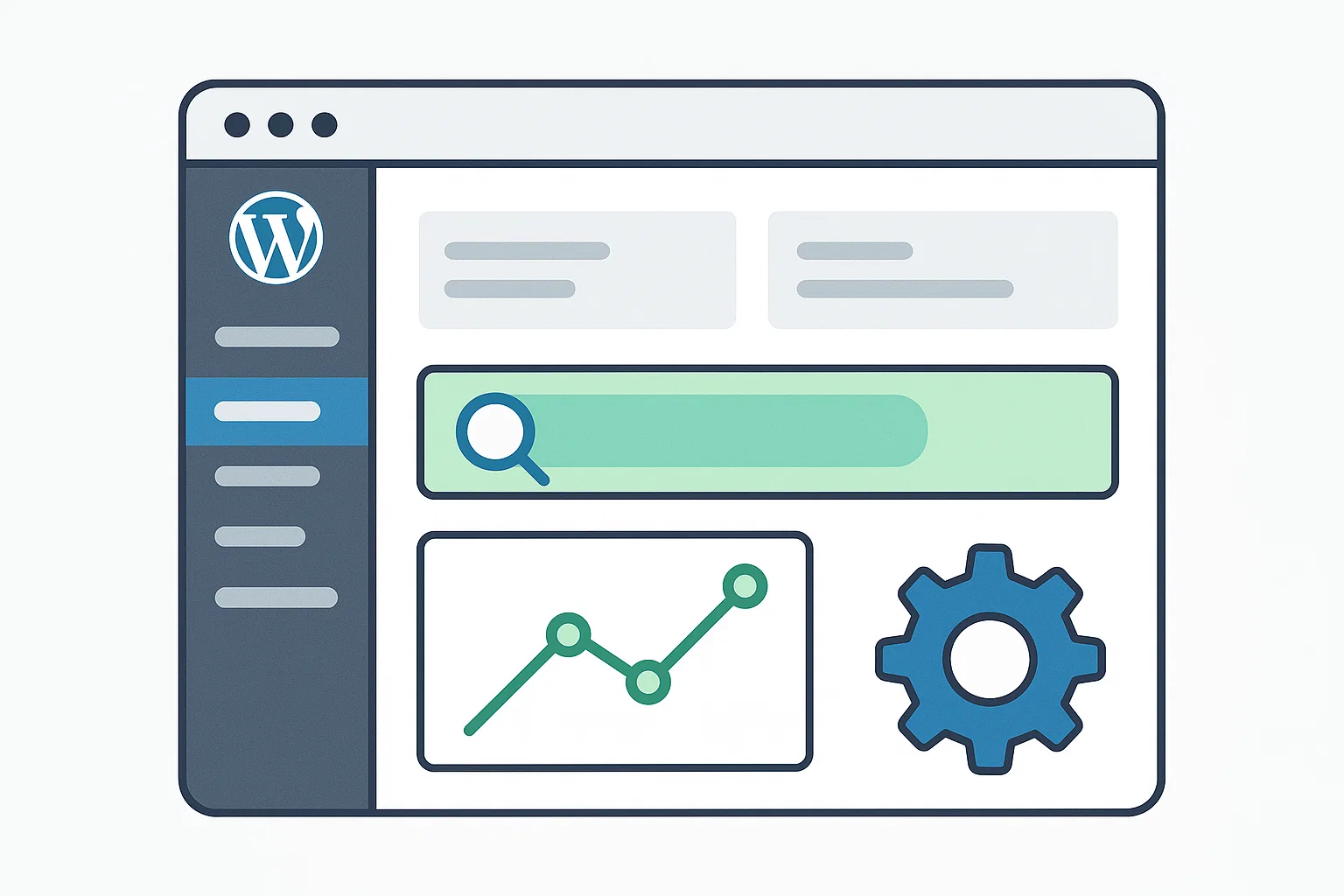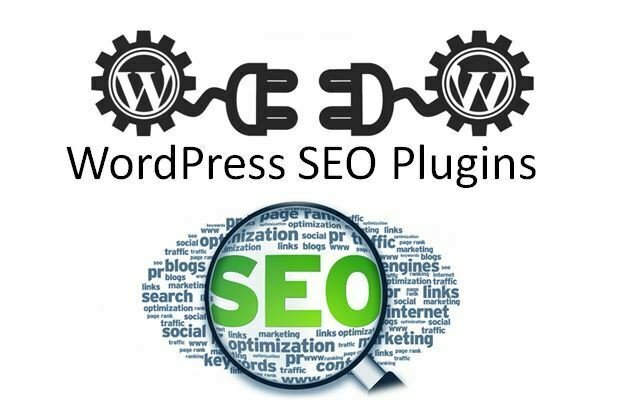
But with hundreds of plugins shouting for attention, which ones actually deliver? Let’s break it down, starting with why SEO plugins matter and which free and premium tools are worth installing.
Why SEO Plugins Matter for WordPress Websites
Think of your website like a café in a busy street. Your coffee (content) might be amazing, but if the lights are off and the signboard is missing, no one will walk in. That’s what happens when you skip SEO.
Search engines need signals: titles, keywords, structured data, speed tweaks. Doing this manually? Possible, but a total headache. SEO plugins simplify everything. They create sitemaps, guide you on keyword use, add schema, and keep your website friendly for both readers and search engines.
And here’s the fun part, most of the top plugins are free to start with. Yep, you don’t need a big budget to make your site SEO-friendly.
What Makes a Great SEO Plugin?
Not every shiny tool is worth your time. A reliable SEO plugin should give you:
Control over titles & meta descriptions
XML sitemaps (so Google can crawl pages easily)
Content analysis (check keyword usage, readability)
Schema markup (rich snippets, star ratings, FAQ boxes)
Social previews (see how your post looks on Facebook/Twitter)
Now, free vs premium? Free plugins give you the basics, perfect for beginners. Premium versions unlock advanced features like internal link suggestions, redirects, or AI-driven SEO tips. If you’re just starting, begin free. If you’re building a business site or chasing serious rankings, upgrading later makes sense.

Top Free WordPress SEO Plugins (Beginner-Friendly)
Here’s where most bloggers start. These plugins cover all the essentials without costing a dime.
1. Yoast SEO (Free)
The old giant. Yoast has been around for years and still rules many blogs. Its traffic-light system (green, orange, red) tells you if your post is optimised. You can tweak titles, meta descriptions, set focus keywords, and generate sitemaps.
But heads up, Yoast free can feel limited once you crave advanced features. Still, for newbies, it’s like SEO training wheels.
2. Rank Math (Free)
This one’s a crowd favourite on Reddit when people ask “Best WordPress SEO plugin for on-page optimization?” The reason? It’s lightweight, fast, and packed with features even in the free version. You get keyword analysis, schema setup, social previews, and easy integration with Google tools.
It’s basically Yoast + extras, without the clutter.
3. All in One SEO (AIOSEO)
As the name screams, this plugin has everything. From meta tags to schema to XML sitemaps, it’s solid. Bloggers who like a no-nonsense setup often go for AIOSEO.
4. SEOPress Lite
Less popular than Yoast or Rank Math, but super neat. It’s clean, lightweight, and doesn’t push too many upgrade prompts. Perfect if you want a quiet plugin that just works.
Best Premium SEO Plugins for Advanced Users
Free tools are good, but if you’re serious about rankings, or running a business site, premium SEO plugins pay off.
Yoast Premium
Upgrades you from the basics. You’ll get internal link suggestions, multiple focus keywords, redirect manager, and 24/7 support. If you’re a content-heavy blogger, this saves time.
Rank Math Pro
Loved by many because even the free version is strong. Pro takes it further, advanced schema, keyword rank tracking, and integration with WooCommerce. If you run an online shop, this is gold.
SEOPress Pro
Cheaper than Yoast Premium but just as powerful. Perfect for freelancers or agencies managing multiple sites, thanks to its white-label options.
Hidden Gems & Lesser-Known Plugins Worth Trying
If you like experimenting (and let’s be real, bloggers love trying new tools), here are some cool alternatives.
The SEO Framework: Minimalistic, lightweight, no ads nagging you. Perfect for clean builds.
Squirrly SEO: Marketed as an “AI SEO assistant.” It gives step-by-step recommendations, making it feel like a personal SEO coach.
Sometimes, going with the underdog plugin is fun, you discover features the big players don’t offer.
How to Choose the Right Plugin for Your Website
Okay, confession: there’s no “one-size-fits-all” plugin. Your choice depends on your website type.
Blogger or hobby site? Stick to Rank Math free or Yoast free.
Small business? Rank Math Pro or AIOSEO Pro will cover you.
Creative projects? Try Squirrly SEO if you like hand-holding guidance.
Agencies/freelancers? SEOPress Pro gives you the flexibility to manage multiple sites without draining your wallet.
Bottom line: choose based on your needs, not hype.
Quick Setup Guide (Step-by-Step)
Not a fan of tech jargon? Don’t worry, here’s how you set up any SEO plugin in under 10 minutes.
Go to WordPress Dashboard > Plugins > Add New.
Search for the plugin (e.g., “Rank Math”).
Install & activate.
Follow the setup wizard (most plugins guide you through titles, sitemaps, and basic settings).
Write a new post and check the plugin suggestions (title length, meta description, focus keyword).
And boom, you’re already ahead of 90% of beginners who skip SEO altogether.
Best Practices for On-Page SEO with Plugins
Here’s where plugins shine, they remind you of things you might forget. Still, a tool won’t do the writing for you. You need to blend creativity + optimization.
Write catchy titles but keep the keyword near the start.
Fill in your meta description, don’t leave it blank.
Use H2 and H3 headings naturally.
Internal linking is huge, link your new post to older related posts.
Add schema (FAQ, review, product) if the plugin supports it.
Check your mobile previews, most visitors come from phones.
Pro tip: Use a content helper like Paraphrasing Tool when you’re stuck. It helps refresh old sentences and make them SEO-ready without stuffing keywords.
Creativity + SEO = Growth
Here’s the truth: SEO plugins are lifesavers, but they’re not magic. You can’t just install one and expect Google to shower you with traffic. What they do is make the boring, technical side of SEO painless, so you can focus on writing better content.
The best approach? Start with a free plugin, master the basics, then upgrade when you feel limited. And remember, creativity still beats checklists. Add your voice, your style, your ideas, and let the plugin handle the grunt work.
Because in the end, SEO isn’t about pleasing Google. It’s about making your site findable, readable, and lovable.

Mia Creatives explores the intersection of technology and creativity. Dive into WordPress, SEO, and innovative ways to thrive online.